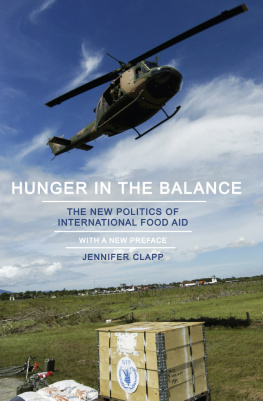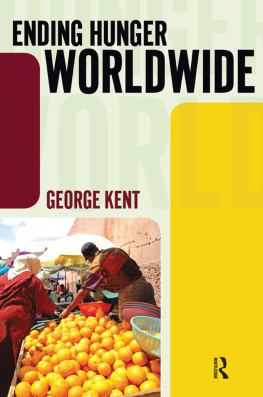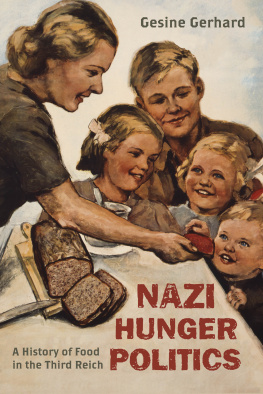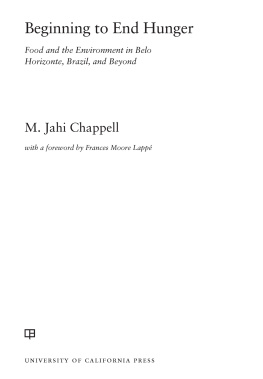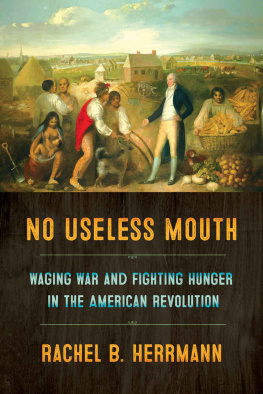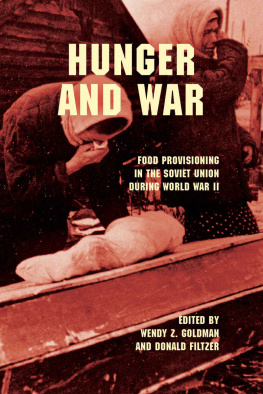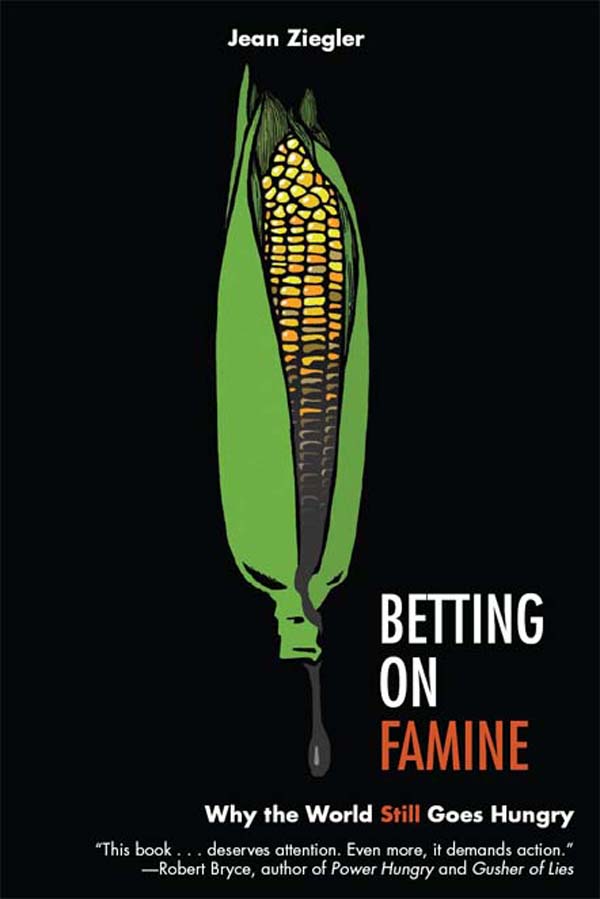Contents
Page List
Guide
BETTING ON FAMINE
BETTING ON FAMINE
Why the World Still Goes Hungry
Jean Ziegler
Translated from the French
by Christopher Caines

NEW YORK
LONDON
The New Press gratefully acknowledges the Florence Gould Foundation for supporting the publication of this book.
English translation 2013 by The New Press
All rights reserved.
No part of this book may be reproduced, in any form, without written permission from the publisher.
Requests for permission to reproduce selections from this book should be mailed to:
Permissions Department, The New Press,
120 Wall Street, 31st floor, New York, NY 10005.
Originally published in France as Destruction massive: Gopolitique de la faim by ditions du Seuil, Paris, 2011
Published in the United States by The New Press, New York, 2013
Distributed by Two Rivers Distribution
LIBRARY OF CONGRESS CATALOGING-IN-PUBLICATION DATA
Ziegler, Jean.
[Destruction massive. English]
Betting on famine : why the world still goes hungry / Jean Ziegler ; translated from the French by Christopher Caines.
pages cm
Includes bibliographical references.
ISBN 978-1-59558-861-6 (e-book) 1. Food relief--Political aspects. 2. Hunger--Political aspects. 3. Food and Agriculture Organization of the United Nations. I. Title.
HV696.F6Z5413 2013
363.8--dc23
2013005169
The New Press publishes books that promote and enrich public discussion and understanding of the issues vital to our democracy and to a more equitable world. These books are made possible by the enthusiasm of our readers; the support of a committed group of donors, large and small; the collaboration of our many partners in the independent media and the not-for-profit sector; booksellers, who often hand-sell New Press books; librarians; and above all by our authors.
www.thenewpress.com
Composition by Bookbright Media
This book was set in Baskerville and Franklin Gothic
10 9 8 7 6 5 4 3 2 1
CONTENTS
The man who wants to keep faith with justice
must ceaselessly break faith with injustice
in all its inexhaustibly triumphant forms.
Charles Pguy
E rica Deuber Ziegler collaborated closely with me on the development of this book. With infinite patience, great savoir faire, and unfailing erudition, she read, edited, and reorganized all ten successive versions of the manuscript. Olivier Btourn, the president of ditions du Seuil, conceived of the book, personally edited the final version, and came up with the title. His stimulating friendship has been of decisive help to me.
My colleagues on the Human Rights Consultative Committee of the UN Human Rights Council (UNHRC), Christophe Golay, Margot Brogniart, and Ioana Cismas, assisted me in researching the book. Sustained by our shared convictions, both their indefatigable commitment and great professional skill have been indispensable.
James T. Morris, Jean-Jacques Graisse, and Daly Belgasmi opened the doors of the World Food Programme to me. Jacques Diouf, director general of the WFP, and many of his colleagues were generous with their assistance.
Pierre Pauli, a statistician in Genevas Cantonal Statistical Office, helped me to master the crushing mass of data on hunger and malnutrition.
At the UNs Office of the High Commissioner for Human Rights (OHCHR), I have been fortunate to be able to rely upon the skillful, discreet, and sound advice of Eric Tistounet, chief of the OHCHR HRC Branch.
Beat Brgenmeier, dean emeritus of the Faculty of Economic Sciences at the University of Geneva, and banker Bruno Anderegg initiated me into the complicated world of stock exchange speculation and hedge funds.
Francis Gian Preiswerk was for seventeen years one of the most famous traders at Cargill, a multinational giant in the food services industry. He welcomed me for many in-depth discussions, kindly read selected chapters of this bookand in irate letters expressed his total disagreement with practically all my arguments. However, his rich experience in trade, his exceptional professional abilities, and his generous friendship have been for me beyond price.
With exemplary care, Arlette Sallin prepared clean copy for each successive version of the book; generous with both her time and her well-informed critique, she has accompanied me throughout my work on this project. I was fortunate also to enjoy the advice of Sabine Ibach and Vanessa Kling. Hugues Jallon, editorial director of the social sciences division at ditions du Seuil, as well as Catherine Camelot, also offered valuable assistance.
To all, I express my profound gratitude.
AGRA | Alliance for a Green Revolution in Africa |
AQIM | Al-Qaeda in the Islamic Maghreb |
ASCOFAM | World Association for the Struggle Against Hunger |
AU | African Union |
CCC | Clean Clothes Campaign |
CIAN | Conseil Franais des Investisseurs en Afrique (French Council of Investors in Africa) |
CODEN | Comit de Dveloppement de la Rgion de Ndo (Committee for the Development of the Ndo Region), Cameroon |
DPKO | UN Department of Peacekeeping Operations |
DRC | Democratic Republic of the Congo |
ECOSOC | UN Economic and Social Council |
FAO | UN Food and Agriculture Organization |
FCI | Food Corporation of India |
FIAN | FoodFirst Information and Action Network |
FINMA | Finanzmarktaufsicht (Financial Markets Authority), Switzerland |
G20 | Group of Twenty Finance Ministers and Central Bank Governors |
G8 | Group of Eight (and similarly: G6, G8+5) |
GATT | General Agreement on Tariffs and Trade |
GBD | Global Burden of Disease |
GDS | Grands Domaines du Sngal (Large Estates of Senegal) |
ICDs | Integrated Child Development Centers, India |
ICRC | International Committee of the Red Cross |
IFAD | International Fund for Agricultural Development |
IFPRI | International Food Policy Research Institute |
ILO | UN International Labour Organization |
IMF | International Monetary Fund |
IRFED | Institut International de Recherche et Formation ducation et Dveloppement (International Institute for Research and Training in Education and Development) |
LAP | Libyan-African Portfolio, Mali |
LDCs | least developed countries |
LEPI | Liste lectorale Permanente Informatise (Computerized Permanent Electoral List), Benin |
MDGs | UN Millennium Development Goals |


